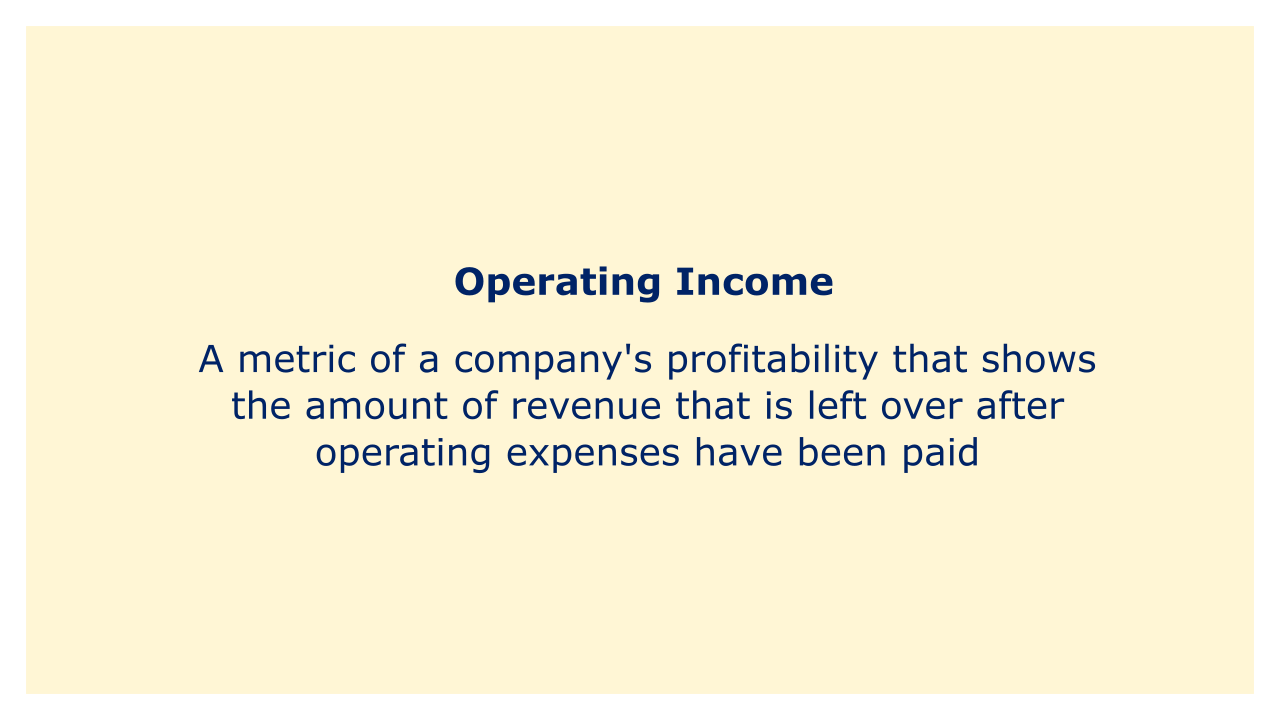 |
| Image: Moneybestpal.com |
Operating income, also known as operating profit or earnings before interest and taxes (EBIT), is a metric of a company's profitability that shows the amount of revenue that is left over after operating expenses have been paid.
Operating income is derived by deducting revenue from running expenses for a business. Costs including salary and wages, rent and utilities, consumables, and depreciation are frequently included in operating expenses. Operating income shows the amount of money a company has made from its main business operations by deducting these costs from revenue.
Operating income is a crucial indicator for assessing a company's financial success since it sheds light on how effectively and profitably its activities are run. A company with a high operating income is likely making a lot of money and managing its spending well, while one with a low operating income may be having trouble making money or keeping costs under control.
Operating income can be compared to net income, which shows the total amount of money a company has made after deducting all costs, including interest and taxes. Operating income gives a more accurate depiction of a company's fundamental business activities than net income, which can be affected by variables like interest rates and tax rates.
